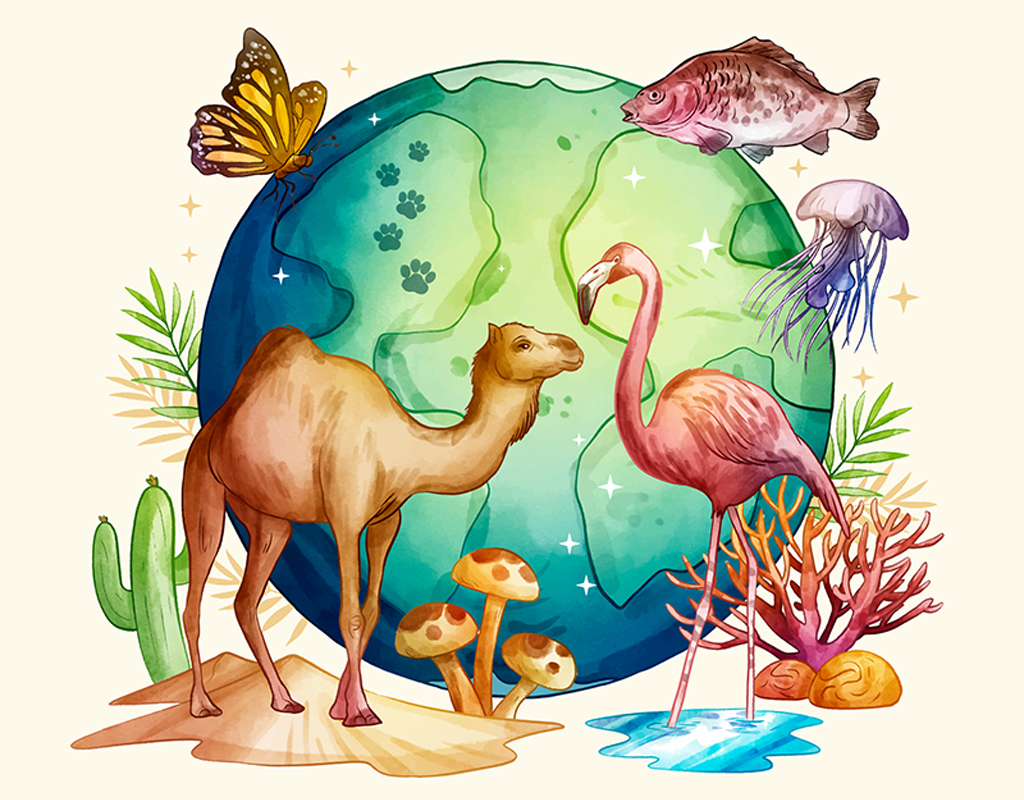Biodiversity: Why Every Species Matters and How We Can Protect Them
In the intricate tapestry of life, every species plays a crucial role, no matter how small or seemingly insignificant. Biodiversity, the variety of life on Earth, is the foundation upon which ecosystems thrive. Understanding why every species matters and how we can protect them is vital for maintaining the health of our planet and ensuring a sustainable future for all.
Why Every Species Matters
Ecosystem Stability: Every species contributes to the stability of ecosystems. Each organism has a specific role, whether it be a pollinator, predator, prey, or decomposer. For instance, bees, as pollinators, are critical for the reproduction of many plants, including those that produce fruits and vegetables essential for human consumption. Without these pollinators, food production would significantly decline, affecting both ecosystems and human food supplies.
Genetic Diversity: Biodiversity also includes genetic diversity within species, which allows populations to adapt to changing environments. This genetic variation is essential for the survival of species as it provides the raw material for evolution. For example, some plants may develop resistance to diseases, ensuring their survival and continued growth.
Interconnectedness: All species are interconnected through complex food webs and ecological networks. The loss of one species can have a cascading effect on others. For instance, the decline of a predator can lead to an overpopulation of prey species, which in turn can overconsume vegetation and disrupt the habitat for other species. This delicate balance highlights the importance of every organism in maintaining ecosystem health.
How We Can Protect Biodiversity
Conservation Efforts: Protecting biodiversity requires concerted conservation efforts. Establishing protected areas such as national parks and wildlife reserves helps preserve habitats and provide safe havens for endangered species. These areas act as biodiversity hotspots, allowing ecosystems to function naturally without human interference.
Sustainable Practices: Adopting sustainable practices in agriculture, forestry, and fishing can significantly reduce the impact on biodiversity. For instance, using less harmful pesticides, practicing crop rotation, and maintaining natural habitats within agricultural landscapes can help preserve species diversity. Sustainable forestry ensures that tree harvesting does not exceed regrowth rates, maintaining forest ecosystems for future generations.
Reducing Pollution: Pollution is a major threat to biodiversity. Reducing plastic waste, limiting the use of harmful chemicals, and implementing clean energy solutions can mitigate pollution’s impact on ecosystems. For example, reducing plastic waste helps protect marine life, which often mistakes plastic for food, leading to ingestion and entanglement.
Raising Awareness: Education and awareness are powerful tools in the fight to protect biodiversity. By understanding the importance of biodiversity and the threats it faces, individuals can take action in their daily lives. This includes supporting conservation organisations, reducing carbon footprints, and advocating for policies that protect natural habitats.
Publish Your Thesis: A Call to Action
Academic research plays a critical role in understanding and protecting biodiversity. If you are conducting research in this field, consider sharing your findings widely. Publish your thesis to contribute to the collective knowledge and inspire others to take action. Disseminating research can lead to new conservation strategies, influence policy decisions, and raise public awareness about the importance of biodiversity.
Biodiversity is not just about the number of species on the planet; it’s about the intricate relationships and interdependencies that make ecosystems function. Every species matters, from the tiniest microorganisms to the largest mammals. Protecting biodiversity is essential for the health of our planet and the well-being of future generations. By taking action through conservation efforts, sustainable practices, pollution reduction, and education, we can ensure that the rich tapestry of life on Earth continues to thrive. So, whether you are a scientist, a student, or simply a concerned citizen, remember that your actions can make a difference. And if you have valuable research, don’t hesitate to publish your thesis and contribute to the global effort to protect our planet’s biodiversity.

